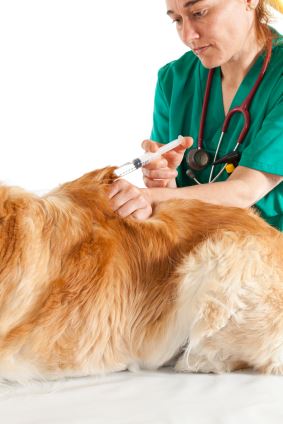Source Murcia Today
A restriction zone has been established around Toledo in Castilla la Mancha
 Spain is on official rabies alert following the discovery of the first case of the disease in dogs since 1978, according to a report published by the Emergency Coordination Centre.
Spain is on official rabies alert following the discovery of the first case of the disease in dogs since 1978, according to a report published by the Emergency Coordination Centre.
The case was reported to the Epidemiology Service of the region of Castilla-La Mancha last week after a dog, born in Catalunya, bit four children and one adult in different areas of Toledo.
The dog concerned was a Pit-bull cross and had travelled to Morocco with 2 other family dogs, remaining in the country for about four months, but following its return to Toledo during May, bit four people, three children, aged 2,6 and 12, as well as a 17 year old male on the 1st June. Although the dog was captured and put down on that same day, the confirmation of rabies infection was not released until the 5th June.
The owner is believed to have falsified vaccinations paperwork and has been arrested for criminal negligence, failing to hold a dangerous breeds license and for the injuries incurred by those bitten by the dog.
Since then health authorities have been taking rapid action, aware that apart from occasional instances in the North African enclaves of Ceuta and Melilla where dogs arrive in Spanish territory from other North African countries, they have succeeded in eradicating the disease from Spain.
The authorities in Castilla La Mancha have established a 20-kilometre restriction zone around Toledo and Argés and others are in force in the municipalities of Banyoles, Porqueres, Montcada i Reixac and Piera in Catalunya, but it is impossible for authorities to completely rule out the possibility of further cases: as a result, although the risk of the disease being transmitted to humans is considered “very low”, they recognize that it exists.
Some dogs have been quarantined, suspected of possible infection, whilst vigilance in the restriction areas is being increased and more stringent domestic and wild animal controls are planned, amongst them the compulsory vaccination of all dogs, cats, ferrets and other pets within 18km of where the attacks took place. In addition, stray animal patrols are to be increased, action will be taken to remove animals which arouse suspicion, travel restrictions are to be imposed, and special vigilance is to be observed in cattle herds and dead carnivores.
"We have also forbidden dogs to be allowed off the lead in public spaces until the danger has passed," confirmed Tirso Yuste, head of the regional Agriculture department.
Epidemiological surveys are being carried out in Castilla-La Mancha and Catalunya, and if the results suggest that it is necessary the restriction areas could yet be widened. At the same time efforts are being made to trace all those who came into contact with the infected animal in Castilla-La Mancha, Catalunya and Aragón.
Based on the current available information, anyone who has been bitten, licked or scratched by a dog within 20km of the city of Toledo since mid-May is urged to seek urgent medical advice.
Dr Hilary Kirkbride, a rabies expert at Public Health England, said:
Although the animal has been destroyed, UK travellers are being advised if travelling to Spain to avoid contact with wild and domestic animals. If they are bitten, scratched, or licked by a wild or domestic animal they should wash the wound thoroughly with soap and water and urgently seek medical advice either in Spain, or on their return from their GP or NHS 111.
It is comforting to know that there is an effective vaccine which can be administered after a bite, and specialists have also developed an immunoglobulin for those who are in most danger of infection.
Toledo is quite high up in Castilla La Mancha, near to Madrid, but is a substantial autonomous community occupying central Spain, with borders to many other communities, including Valencia, Murcia and Andalucia.
Although authorities are confident of containing any further cases, pet owners who are concerned should ensure their animals do not run loose in the streets and are fully vaccinated against rabies.